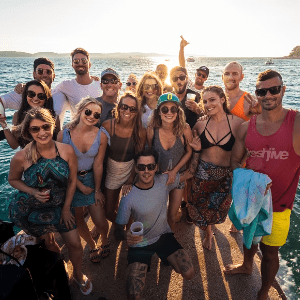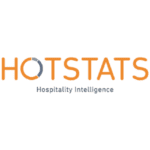 We’re still in the first quarter of 2022 and let’s get a lay of the land. Barring some crazy new variant, our bet is on the pandemic ‘ending’ by summer. The vaccines are working to prevent serious hospitalizations, travel restrictions are slowly vanishing and, above all, people are just tired of the whole thing. This means leisure transients will be swarming back – aptly dubbed ‘Revenge Travel 2.0’ – as we’ve seen for the past two summers. But where does that leave corporate travel and groups?
We’re still in the first quarter of 2022 and let’s get a lay of the land. Barring some crazy new variant, our bet is on the pandemic ‘ending’ by summer. The vaccines are working to prevent serious hospitalizations, travel restrictions are slowly vanishing and, above all, people are just tired of the whole thing. This means leisure transients will be swarming back – aptly dubbed ‘Revenge Travel 2.0’ – as we’ve seen for the past two summers. But where does that leave corporate travel and groups?
This is critical because the pent-up demand in leisure will only last so long. Our most-current guess is that it runs out of gas just after this year’s holiday season, with the exclusion of all the backlogged travel to use up all those credits still leftover from 2020 cancellations and other postponements. Hotels need business travelers to fill midweek inventory and they need those big room blocks from groups that come with BEOs or venue space rentals.
While the corporate slice of pie is a whole other article, when you examine the nature of groups in the post-pandemic landscape, you’ll immediately realize some stark differences from 2019. These are important because they’ll necessitate team restructurings and, per the title, more technology to automate the process from initial inquiry to service execution.
These include but are not limited to:
- Residual fears of COVID-19 may limit large-scale conventions, pushing some back to 2023, although if present infection trajectories hold the latter half of this year may shape up to be one of the best for in-person exhibitions
- Contactless is still very much in vogue, with planners looking to handle most activities leading up to the event virtually including property tours and video call negotiations
- People still want to meet, though, as there is some strong pent-up demand for events, especially within the domains of company planning sessions, AGMs, postponed wedding receptions, family reunions and all in-between
- Recession or not, money will be tight going forward, so expect a bit of back-and-forth on prices quoted, which can ultimately bog down your team with round after round of revisions
- The labor crisis in hotels is going to continue, inevitably amounting to service delivery interruptions during the actual event while at the same time managers continue to ask their employers for more remote work flexibility
- To make up for lost time and to get around the fear of big crowds, events are generally smaller in total number of attendees and they’re being booked with much shorter lead times, sometimes less than two weeks out from the intended date(s)
- With so much lasting uncertainty, hotel teams are going to stay lean to safeguard margins, meaning your sales department will have to pivot on a dime to land contracts
It’s the last two point that you should dwell upon. Events move fast and planners expect immediate answers or formalized quotes because they don’t have time to wait. There’s a bit of ‘first come, first serve’ acceptance here, so your sales team can’t rely on the old paper-and-pen methods; they’re too slow and too laborious.





















